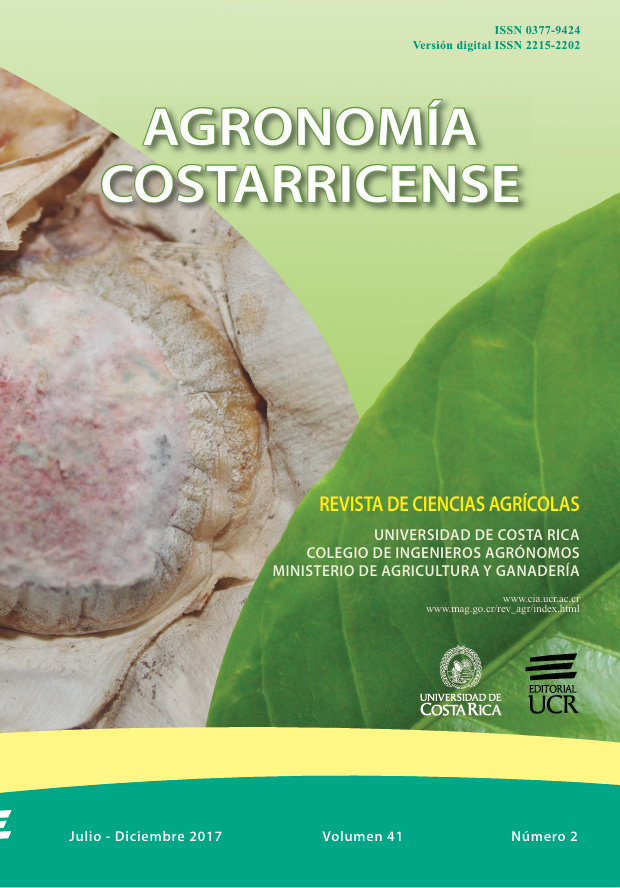Abstract
Production of vegetables has a great economic and social importance in Costa Rica, since it is a basic nutritional source for the population and the main economic activity for many producers. However, application of agrochemicals represents a risk to consumers´ health since it can generate the presence of residues in the produce. During 2013 and 2014 an investigation was developed with the objective of defining the Potential Risk Situations (SRP) associated with the application of pesticides, in order to establish the degree of compliance of their use by producers in the Central Valley of Costa Rica. First, a list of SRP was elaborated, that is, of all those points in the process of vegetable production related to the application of agrochemicals that represent some risk for food safety. Subsequently a questionnaire was elaborated and applied to managers of 164 horticultural production systems. It was established that between 21.1 and 38.9% of producers learned about the use pesticides by practice that is, without any formal instruction. Between 57 and 76% of producers, have a scale or measuring equipment graduated in order to measure pesticide doses. About half of producers follow the recommendations of the seller of the product regarding the dose to be used; however, between 55 and 76% of producers use volume dosage. Regarding pesticide withdrawal period, 40% of tomato producers and 45% of green pepper producers indicated they do not respect this period. It is concluded that according to agrochemical management in horticultural production in Costa Rica, there is an important amount of risks that could generate contamination by pesticide residues, thus, compromising consumer health.
##plugins.facebook.comentarios##

This work is licensed under a Creative Commons Attribution-NonCommercial-NoDerivatives 4.0 International License.
Copyright (c) 2017 Agronomía Costarricense


